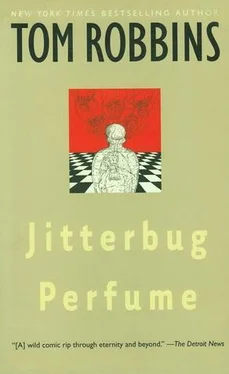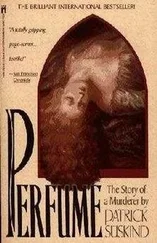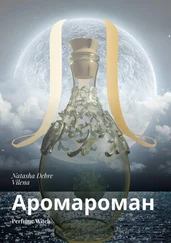“This temple (gasp) art as tired and (wheeze) rundown as I,” panted Pan, and, indeed, though the professional virgin, Geneviève, was regarded with much paradoxical affection in the City of Romance, the church would be razed in less than a century to make way for a fine new building in the neoclassic style. In 1817 the well-traveled bones of Descartes would be transferred from its yard to St. Germain-des-Pres, but on this spring morning they were to be planted in the mossy cemetery where Geneviève's own saintly remains had a thousand years been lying.
In his more vital days, Descartes had included in his philosophical treatises enough scientific fact to displease the bishops, so except for the cleric whose Latin platitudes were to be rained on his deaf skull, the Church was without representation at his interment. However, among those who were obeisant to the new religion of science, which was in its husky infancy at this time, Descartes was increasingly revered, and they attended the rite in fair number. Pan rested upon a burial vault at a far end of the yard and watched their carriages arrive.
Some of the professors and physicians were rather shabby; they were men too clothed in ideas to pay much heed to grooming. Many others, however, including the provost of the University of Paris, the president of the guilds, the designer of the Observatoire, which was about to be built, and the chairman of the mathematical society were decked out in black silks and powdered wigs. The sight of those wigs gave Pan an idea. Earlier in the century, wigs had been worn exclusively by the nobility, but now they had become popular with the bourgeoisie. If Alobar were to sport a wig, thought Pan, it might solve his current problem and put a stop to his bickering with Kudra. “No small blessing, that,” he said. He rubbed his bleary eyes and yawned.
About then a small brass band struck up a dirgeful tune, and Pan, who fancied himself a musician, listened critically. “In all of Arkadia, there be not a single sheep who wouldst dance to such noise,” he complained. But once the speechmaking commenced, he was sorry the music had ended.
Aristotle had dealt Pan an enervating blow. Then, Jesus Christ had practically belted his horns off. Now, word was out that Descartes had applied the coup de grace. What little remained of Pan's ancient power was destined to evaporate in the Age of Reason, that's what the experts said. Pan, weary and indistinct, could not dispute them. When he learned of Descartes's funeral, some morbid (or goatish) curiosity drew him, sore of hoof, to Ste. Geneviève-du-Mont.
Like jugged bees, the funeral orations droned on. One intellectual honored Descartes's Discourse on Method , another convinced every moss-backed headstone in the churchyard of the departed's contribution to the theory of equations, while a third, more bombastic than the rest, rattled in its vault the untested pelvis of good Saint Geneviève with his praise of the new rationale. Just as the university provost was uncorking his monotone, the spring breeze suddenly shifted direction, and the funeral party found itself downwind from Pan.
The crowd grew inattentive. Out of the corner of his eye, the provost checked the environs for animal life. Those who owned handkerchiefs soon had them to their nostrils (a passerby might have assumed that they were weeping). Among those who had no handkerchiefs was the priest. “This is what the Almighty thinks of science,” he mumbled, then immediately crossed himself, begging forgiveness for having attributed to God a scent that obviously was Satan's.
Of course, the group was lucky. Pan's reek was actually mild compared to what it had been in the good old days. Nevertheless, a certain waggish mathematician provoked some scorn and much stifled laughter when, in a stage whisper, he paraphrased Descartes's most famous dictum.
“I stink, therefore I am,” he said, nodding toward the Swedish walnut coffin.
“Ever thus.” Pan sighed. Where was the profit in invisibility if one's odor gave one away? He creaked to his feet and, on legs of wobbly wool, threaded through the crowd toward the stone gate. Halfway there, he remembered his idea about a wig and, in passing, snatched the hairpiece off a prominent man of learning. Assuming that the wind had taken it, other bewigged guests grabbed at their own adornments, anchoring them to their noggins. There the French intelligentsia stood, one hand to its hair, the other to its noses, as the god and the wig bobbed out of Saint Geneviève's decaying churchyard and down the hill to the Seine. It was the first fun Pan had had all week.
Upon reaching the riverbank, Pan stopped for a breather. He uprooted a clump of turf and hid the wig beneath it so that no passing bargeman might mistake it for a relic of an aristocratic romp in the grass. An invisible learned early that his possessions and trappings did not borrow his ability, which meant that he must go always empty-handed. Pan could not even carry his pipes.
That was a shame, because a breezy April morning such as that one was meant for a tune. On similar mornings in the old days, the golden days, Pan's mischievous piping on the outskirts of a village would be the signal for the village men to lock up their wives and daughters. Those who failed to secure their women would lose them that day to the pastures, from where they would return after dusk, tangle-haired, grass-stained, and stinking of the rut. Pan grinned at the memory. “Methinks I could pipe Maria Theresa right out of the palace,” he mused, referring to Louis XIV's young bride.
It was encouraging that he would mention a contemporary female, for Pan had begun to live in his memories, an unhealthy symptom in anyone, suggesting as it does that life has peaked. Every daydream that involves the past sports in its hatband a ticket to the grave. Yet, what did the neglected god have to look foward to? To ambrosia, to Maria Theresa, to a monthly pension, a flock of his own? No, only the ministrations of Alobar and Kudra kept him going, and as their recent quarreling intimated, the couple had other things to worry about.
As he warmed his horns on the sunny riverbank, watching the wind-torn chestnut blossoms drift by like melted nymph flesh on the tide, Pan dismissed Descartes and his prideful ambition to force nature under human control, and thought instead of Alobar and Kudra, how they had come to Arkadia, drunk on eternal knowledge, seeking him out and laughing. .
Presumably, their “eternal knowledge” was derived from the Bandaloop, albeit indirectly. No documents, no artifacts, no graffiti were left behind by the Bandaloop, but as Dr. Wiggs Dannyboy of the Last Laugh Foundation has written, “Physical immortality is primarily a matter of vibration,” and the caves certainly were resonant with the vibrations of their former occupants.
Alobar and Kudra lived in those caves, amidst those vibrations, for seven years, during which time they learned many of the secrets of life everlasting. Alobar believed they should have stayed longer and learned more, and this belief kept surfacing like a lungfish in the hot surf of their seventeenth-century quarrels. Way back then, however, six hundred years further back, when the cream was still thick and yellow on the magic milk and the marble egg of logic laid by the Greek philosophers had yet to hatch, Alobar was simply too happy to protest at length.
Kudra was as thrilled as he with their Bandaloop education, yet she had been yearning since childhood, since that formative merchandising trip, to go out into the wider world, and now, tingling as she was with vitality and confidence, she was impatient to plunge into far cities and countrysides. “Take me to the lands where the sun sets,” she implored. “We can do our immortality work wherever we are.” That was basically true, for, and here we quote Wiggs Dannyboy again, “Physical immortality is not an end result, a condition to be arrived at in the future, but an ongoing discipline, an attitude, a way of life to be practiced in the present, day by day.” Nevertheless, Alobar was convinced that there were serious holes in their knowledge that could best be filled in the caves of the Bandaloop. He made a sincere effort to persuade Kudra to linger; then, having failed at that, jumped with her, lighthearted and eager, into the meandering mainstream of medieval life.
Читать дальше












